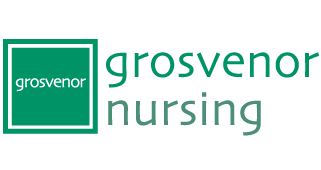Speeding up the payment of your eTimesheets
Dear A24 Group Member
Unfortunately we’ve been experiencing a number of issues regarding electronic timesheet payments for bookings carried out at NHS Trusts that use eTimesheets.
Some NHS Trusts have elected to use this system as it allows them to closely control their agency usage and spend.
Ward managers have been instructed to only “Authorise” bookings where they can clearly see the agency worker completed the assignment that they were booked for.
In most cases delays in payment are on the Trust’s side and result when ward managers do not have sufficient information to confirm your attendance and “Authorise” your timesheet for payment.
Payroll and your bookings consultant will always work with you and the relevant ward manager/s to resolve these issues speedily BUT in most cases the delays can be avoided if you follow the guidance below.
Feedback from these Trusts highlights that there are four main issues that delay their authorisation of your shifts:
- The Agency Worker did not sign the “Agency Book” on the ward to state their start time when they began their shift *** Please Note: Some wards also require you to sign out also
- The Agency Worker is asked to change wards, due to a changing need at the Trust, and they do not sign the “Agency Book” on the original ward to state where they were moved to
- The Agency Worker is asked to change wards and they do not sign the “Agency Book” on the new ward to state the start time and the ward they were moved from
- The Agency Worker works a shift that has not been added to the online booking portal on the wards
Tips:
- Once you arrive for your shift, it is your responsibility to sign the “agency book”. Always ask a member of staff to initial next to your name (this is normally done by the ward manager, ward sister or ward clerk to acknowledge that you have arrived for your shift).
- Politely insist that they sign the book at the time because as you know wards can be busy places and they may forget causing delays in your pay.
- Always note where you were asked to move to and from in the “agency book” books on both wards. This leaves a paper trail to help us get you paid quickly after the shift. This normally results in new booking reference numbers being generated of the Trust’s booking system as each ward is treated as a separate shift when it comes to payments.
- When you have concluded your shift and ready to leave the ward politely ask the ward sister if they could “Authorise” your timesheet.
- In the event that you arrive on a ward and they say the shift you were booked for has been cancelled (this is rare but can happen for a number of reasons) and they then offer to keep you on to work or move you to a different ward to work then it is important they create a new booking for you on the system that can be later “Authorised”. Please let your consultant know in this instance.
Note:
To allow us enough time to process payments for the Friday after the booking was carried out, for client s using the eTimesheets our payroll cut off for “Authorised” eTimesheets is Monday at 3pm.
In the event the trust authorises your timesheet after this time the timesheet will be processed in the following week’s payroll run.
To ensure streamlining of payment we also urge candidates to inform us if they have been moved from one ward to another at the client. This way we can update our systems to reflect the correct booking for each candidate and timesheet.
By following the above guidance you will help us get you paid as quickly as possible. However, if you do experience issues with payments for bookings carried out at eTimesheet clients. Please call your consultant to see if the ward has “authorised” your shift.
Best Regards
A24 Group Payroll Team

